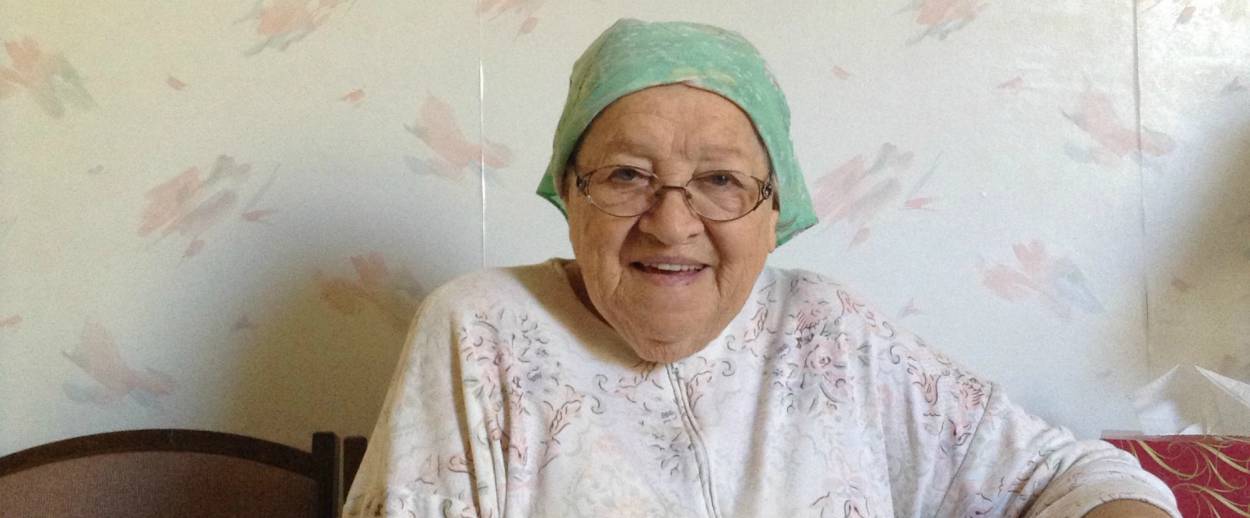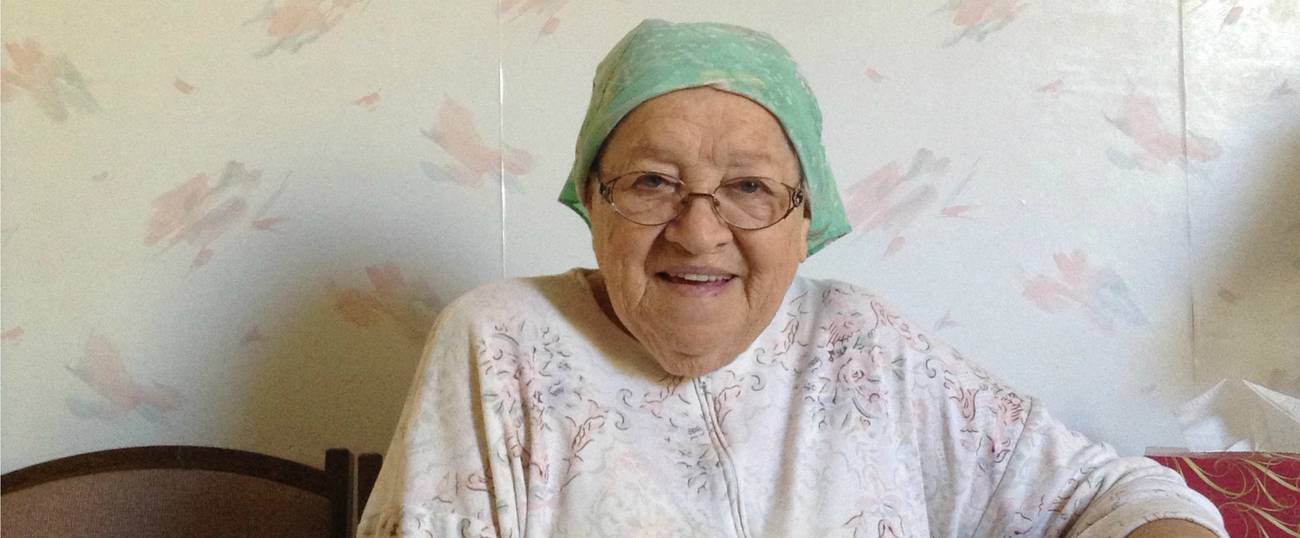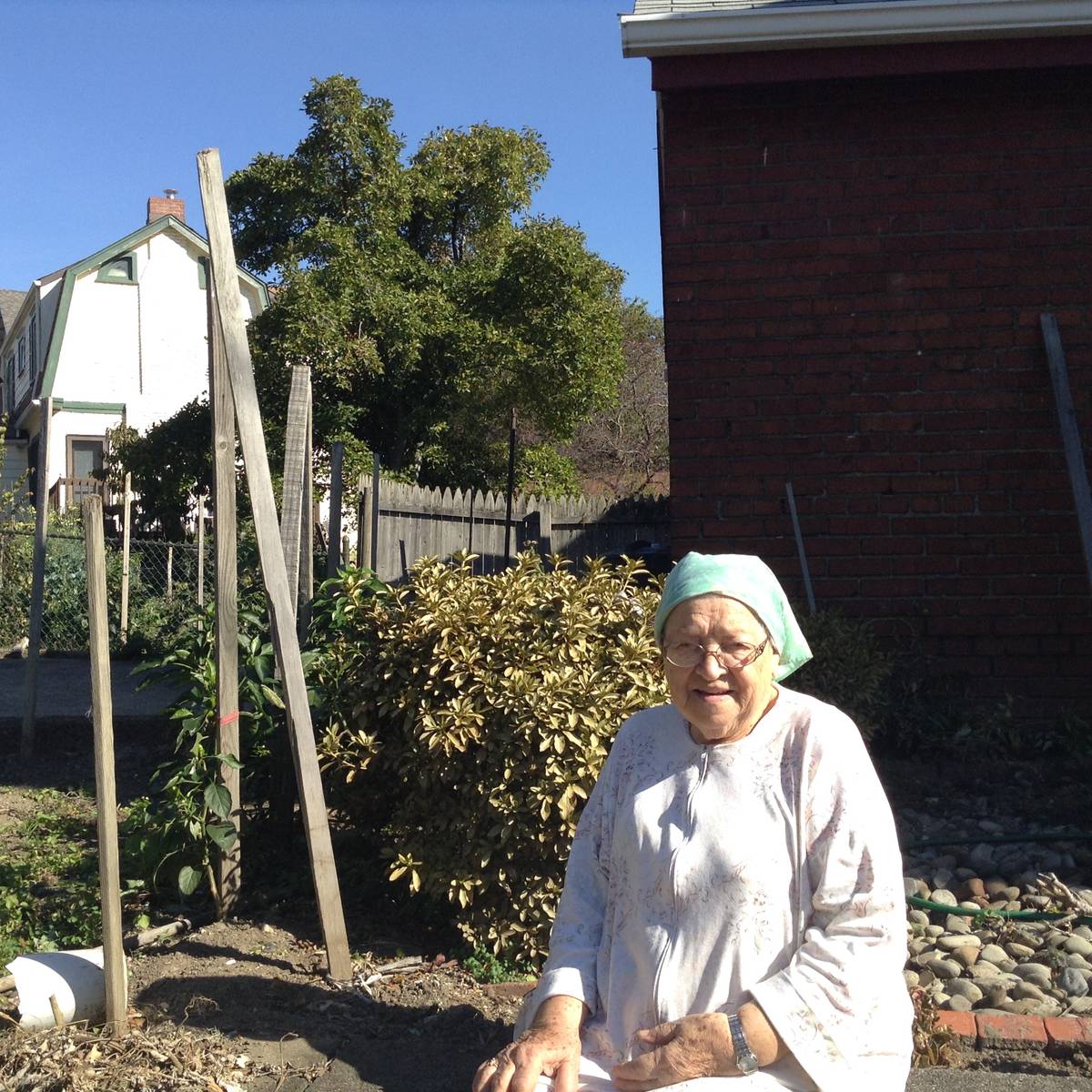Meet Malka Markovic, 92, a Holocaust Survivor and Long-Time Mikveh Lady in Pittsburgh
‘Working saved me. It still saves me.’




There are no official records for this as far as I can tell, but if there were I imagine that Malka Markovic would possess the title of “the oldest working mikvah lady.” At 92, Markovic runs, repairs, and maintains the Jewish Women’s League mikveh, a ritual bath, in Pittsburgh’s Squirrel Hill neighborhood, home to one of the city’s largest Jewish populations. Markovic, who is Orthodox, lives in the home above the mikveh, which is run under the supervision of the Orthodox Vaad Harabanim of Pittsburgh. The community, however, is building a new mikveh that will not include housing. So, within the next few months, Markovic will retire after 28 years.
Markovic, who was born in Loza, Czechoslovakia in 1923, says her position as mikvah lady has been the best job of her life. In fact, she credits the work for keeping her young. The youngest of nine siblings living (only four survived World War II), Markovic’s testimony to the U.S. Holocaust Memorial Museum about her time at Auschwitz and Bergen-Belsen, and in a factory making plane parts in Germany, can be heard here.
Markovic has been around people all her life, and loves being surrounded by them, so she has company every night. In fact, during the course of my hour-long conversation with her, Markovic fielded two phone calls for appointments to the mikveh. She welcomes all members of the Jewish community. In her years, she’s seen a lot—Reform rabbis converting African-American babies to Judaism; Orthodox brides and their mothers; older women who want to experience the mikveh once in their lives; cancer survivors. She offers everyone tomatoes from her garden in season. (Full disclosure: I accepted them and they are delicious).
I recently spoke with Markovic who had been up until midnight the night before cleaning the mikveh after visitors left.
What are your favorite groups that come to the mikveh?
Kallahs (brides) coming is very nice. I give them something to read—a prayer, a blessing. Somebody brought one for me from New York. Sometimes the groom comes too, they come together. I encourage them to come. A couple came from Congregation Rodef Shalom (a Reform shul in Pittsburgh). He went that way, she went this way. They appreciate it.
Once, an Israeli woman, Sephardic, came and [the family] played music. The Sephardi make parties in the mikveh. They brought pop, cake. The bubbe says, “Don’t worry it’s all kosher, I brought it from Israel.” The wedding was on Shabbat, she wasn’t religious. The bubbe who came from Israel was upset that the kallah wanted it on Shabbat.

What did you say to them?
What did I have to say? It’s not my business what they do outside the mikveh.
What is the most unusual thing that has happened to you at the mikvah?
Someone came once at 3 a.m. after her daughter’s wedding. [It was the mother of the bride who] didn’t want to miss [going to the mikvah on the appointed night]. Another time a group came from Rodef, nine girls. They were learning about the mikveh and then they had a party. They brought champagne.
Do you remember the mikvah in your hometown [in Czechoslovakia] before the war?
Yes, we lived close to it. They would heat it with wood one time during the week. The men used it Friday in the afternoon before going to shul and the wives in the evening, or as long as the candle would last. It was a poor village and it cost a lot of money to heat. No one had a bathtub at home so they took the water in the mikveh and put it in the bathtub in the same room. It was bitter cold just to get out of the tub to the mikveh. There was no heat in the building.
How has work “saved” you?
I always loved to work. The work makes you young. You don’t age.
In the camps (Auschwitz and Bergen-Belsen), I dished out food. They voted for me because what was left I gave to someone else, a different person each day. My sister and my sister-in-law were with me but they were not special. I didn’t cheat or take for myself. I told each one, “Tomorrow you’ll get, I don’t have for everyone.”
Then, I volunteered to work at a factory in Aschersleben, Germany, [where] they made plane parts. (A subcamp of Buchenwald concentration camp was located in Aschersleben). The food was better there—potatoes, noodles. At Bergen-Belsen the breakfast was weak coffee, lunch a slice of bread, and dinner boiled beets. I volunteered (to leave Bergen-Belsen for Aschersleben) because I was sick and they shot people who got sick.
Working saved me. It still saves me. I can’t tell you how good I feel here. Safe and good.
This interview has been edited and condensed.
Here, also, is a short YouTube video about Malka Markovic.
Related: Baring Myself in the Mikveh
Beth Kissileff is the editor of the anthology Reading Genesis (Continuum, 2016) and the author of the novelQuestioning Return (Mandel Vilar Press, 2016). Visit her online at www.bethkissileff.com.